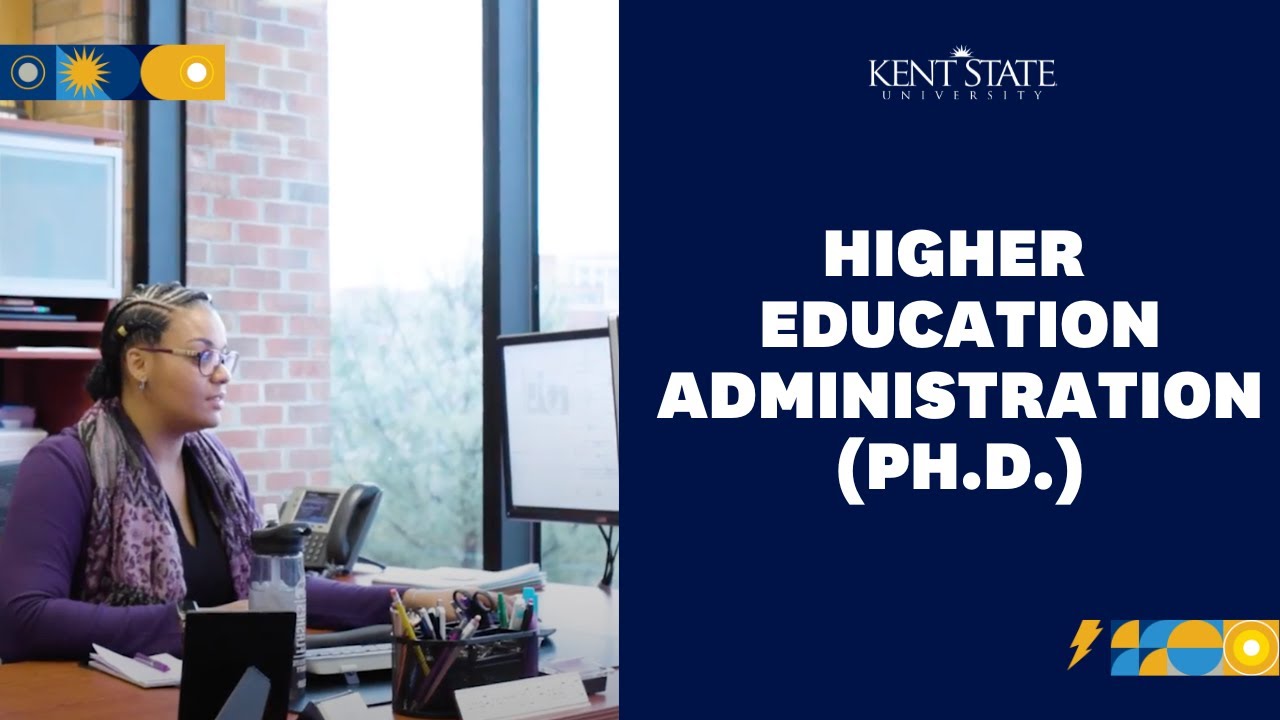Ph.D. in Education with Higher Education Administration: Introduction, Admission, Registration, Eligibility, Duration, Fees, Syllabus 2024

Introduction:
Higher education institutions serve as pillars of knowledge dissemination, innovation, and societal progress. Pursuing a Ph.D. in Education with a concentration in Higher Education Administration provides an opportunity to become a leader in shaping the future of academia. This guide aims to provide insight into the journey of earning a Ph.D. in Higher Education Administration, from admission requirements to career prospects.
Admission Process:
- Submit an application to the university's education department, specifying the Ph.D. program with a concentration in Higher Education Administration.
- Provide academic transcripts, letters of recommendation, and a statement of purpose outlining research interests and goals related to higher education administration.
- Demonstrate proficiency in research methodologies, educational leadership, or related fields through previous academic coursework or professional experience.
- Participate in interviews or presentations to discuss research interests, potential contributions to the field, and alignment with the program's focus on higher education administration.
Eligibility:
- A Master's degree in Education, Higher Education Administration, Educational Leadership, or a related field.
- Strong academic background with coursework in educational administration, policy analysis, organizational management, or higher education law.
- Demonstrated leadership experience or interest in higher education administration, institutional governance, or academic affairs.
- Proficiency in relevant research methods, data analysis, and communication skills.
Completion Time:
Typically ranges from 4 to 7 years, depending on the complexity of the research project, data collection, analysis, and dissertation writing.
Career Opportunities:
- Administrative roles in colleges and universities, such as dean, provost, department chair, or academic program director.
- Leadership positions in higher education associations, accreditation agencies, or government organizations, focusing on policy development, institutional assessment, or educational research.
- Opportunities in consulting firms, educational foundations, or non-profit organizations, providing expertise in strategic planning, institutional effectiveness, or leadership development for higher education institutions.
- Faculty positions in higher education administration programs, teaching courses on leadership, organizational theory, finance, or governance in higher education.
Syllabus:
- Core courses cover higher education law, organizational behavior, finance and budgeting, strategic planning, and policy analysis.
- Advanced seminars on emerging issues in higher education administration, such as diversity and inclusion, student affairs, enrollment management, or internationalization.
- Electives in specialized areas such as academic leadership, fundraising and development, online learning administration, or community college leadership, providing opportunities for interdisciplinary study and research.
Internship Opportunities:
- Engage in internships or administrative residencies at colleges, universities, or higher education organizations, gaining hands-on experience in various aspects of institutional management and leadership.
- Collaborate with faculty members or administrators on research projects, policy analysis, or program evaluation initiatives, contributing to the advancement of knowledge in higher education administration.
- Participate in professional development activities, workshops, or conferences, networking with leaders and practitioners in the field of higher education administration.
Scholarships and Grants:
- Institutional funding through graduate assistantships, research grants, or teaching assistant positions within the education department or higher education administration program.
- External scholarships provided by government agencies, foundations, or professional associations supporting research in higher education policy, leadership, or administration.
- Funding opportunities specifically targeting projects addressing emerging issues in higher education, institutional innovation, or leadership development, based on academic merit or research potential.
FAQs:
What is the focus of a Ph.D. in Education with a concentration in Higher Education Administration?
This program focuses on preparing future leaders and scholars in higher education administration, addressing critical issues facing colleges, universities, and other postsecondary institutions.
What research areas can I explore within this Ph.D. program?
Research areas may include higher education policy analysis, leadership development, organizational change, student success, institutional governance, or diversity and equity in higher education.
Can I pursue a faculty position with a Ph.D. in Higher Education Administration?
Yes, graduates of this program often pursue faculty positions in higher education administration programs, teaching courses on leadership, governance, finance, or policy analysis.
Are there opportunities for practical experience during the program?
Yes, many Ph.D. programs offer internships, administrative residencies, or field experiences at colleges, universities, or higher education organizations to provide students with hands-on experience in institutional management and leadership.
What support is available for students interested in pursuing research in higher education administration?
Students have access to faculty mentors, research labs, and interdisciplinary collaborations, as well as funding opportunities, internships, and professional development resources to support their research endeavors.





